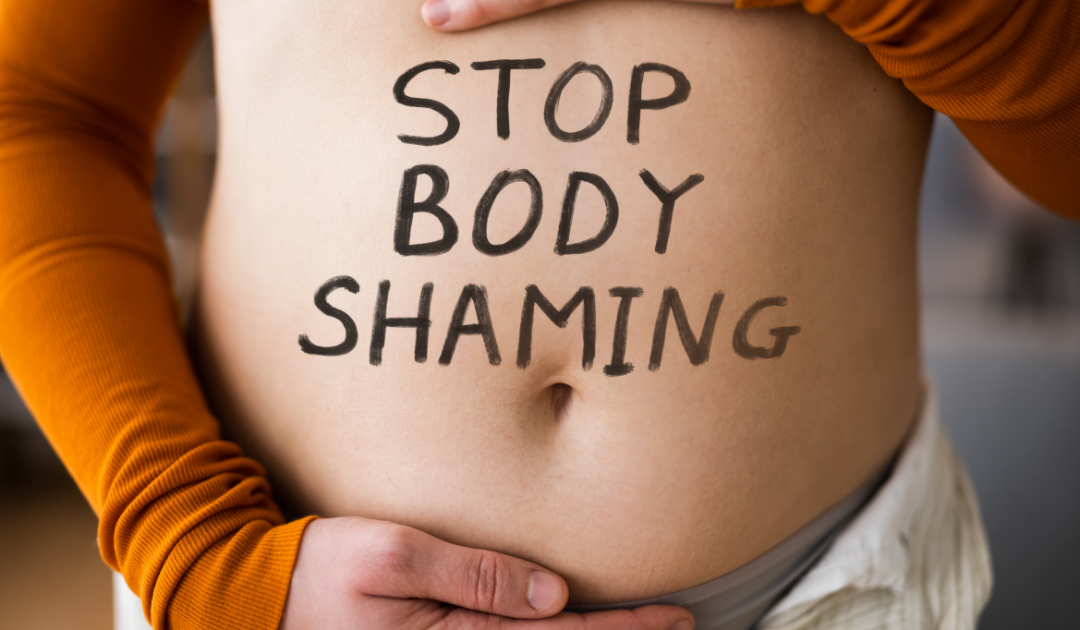Whatever your child’s age or gender, body image is a topic that belongs in your daily teaching and communication. If body image is a sensitive or confusing topic for you as an adult, imagine how it can impact a child’s impressionable mind.
Information about body image in the media will help you become more comfortable with this topic. It’s a subject every parent needs to understand. Especially because social media is here to stay.
“Body image in the media” covers 2 super important topics, especially for kids and teens: body image and media.
“Body image” refers to the relationship people have with their own bodies. It includes thoughts, feelings, judgments, behaviors, and perceptions.
Cultural influences are also part of the relationship people have with their bodies. This often overlooked influence is called Diet Culture. Other blog posts describe Diet Culture in more detail.
“Media” refers primarily to social media, and to TikTok and Instagram in particular. Netflix, Hulu, and Amazon Prime are other forms of media.
Whether or not you have talked with your child about body image in the media, read these articles. The content may be a review of what you already know. But read them through the filter of being a parent committed to helping your child develop a healthy body image.
Kids may roll their eyes at you. (Take it as a sign of good parenting.) Nonetheless, tweens, teens, and even young adults still need guidance from parents about topics such as body image in the media.
Three articles about body image in the media to read before talking with your child are listed below. Depending on your child’s age, you could read them together.
The Effects Of Social Media On Body Image And Mental Health
Social Media Makes Me Feel Bad About My Body
How To Protect Your Mental Health Online
Here are some key take-aways from the articles:
1. When scrolling through social media platforms, users naturally compare themselves to the images they see.
The images (e.g. on TikTok or Instagram) are often digitally altered and heavily filtered. They are not real. Users’ mental health (and body image especially) deteriorates as a result of viewing these images. That is what’s real.
2. There are three main reasons social media use is concerning:
- The definition of “normal” becomes distorted. The images of bodies on social media are modified to enhance cultural features deemed attractive. These “highlight reels” are the images that bombard us. Not only are they not realistic, they’re harmful.
- The sheer number of people available for comparison has exploded. ‘We can’t talk about “global overpopulation” without weighing the influence of all those people and all those visual platforms for expression.
It used to just be our group of friends and peers at school. Now there are social media influencers and a zillion other humans online, all vying for coveted attention, approval, and social envy. Body image doesn’t stand a chance. - There is no break. Most people are on several platforms, and they have easy access. (Hello, cell phone/handheld device.) They’re bombarded with images and feel worse and worse about themselves the longer they’re online.
3. Not everyone on social media is kind.
There are trolls online who make insensitive comments that damage mental health. People say mean things online that they would not say in person.
4. It feels good to collect “likes,” “loves,” heart emojis, and friend requests.
That kind of (fake) validation can become addictive, though. Plus, it makes it tricky at times to distinguish between real friends and social media friends.
It’s not all doom and gloom.
Learning how to navigate social media is essential, especially when it comes to body image.
- Seek out people with whom you feel good about yourself.
- Focus on liking and posting “feel good” images. Puppies and other animals are always good because they are always “in the moment…and they don’t have body image issues.
- Apply the Golden Rule: Treat people online how you want to be treated online.
- Take social media breaks.
As a parent in 2021, being social media-literate and familiar with the effects of media platforms on body image and other mental health issues is supremely important.
Fortunately, not everything online is suspect. And your education about body image in the media can start with three articles…and a little help from Google.
Dr Elayne Daniels is a clinical psychologist, consultant, and international coach specializing in body image, eating disorder recovery, and Highly Sensitive People. Her passion is helping people feel comfortable in their own bodies…from the inside out. Contact her here.
